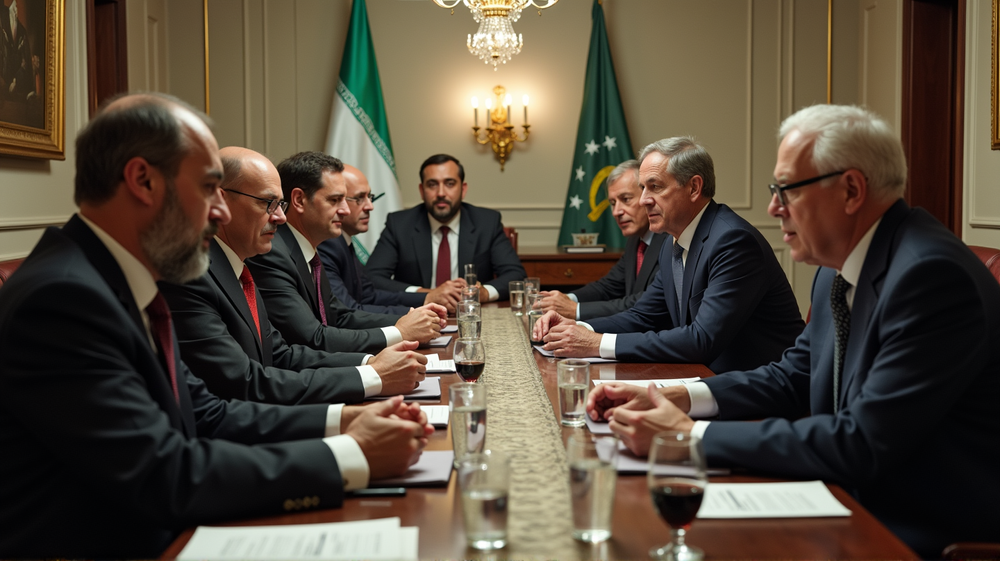In a heated accusation that ramps up the diplomatic tensions in the Middle East, Iranian Foreign Minister Abbas Araghchi has publicly accused Israeli Prime Minister Benjamin Netanyahu of meddling in U.S. politics. Araghchi’s assertion comes as nuclear negotiations between Tehran and Washington hit a rocky path, stalled at pivotal moments.
A Delicate Dance of Diplomacy
Netanyahu has been a vocal opponent of any deal that would merely limit Iran’s uranium enrichment, urging for the complete dismantlement of Tehran’s nuclear capabilities. This uncompromising stance has led Araghchi to accuse Netanyahu of attempting to dictate the directions of U.S. diplomacy with Iran, potentially dragging the U.S. into further chaos in the volatile region.
Stalled Negotiations and Suspended Talks
The fourth round of nuclear negotiations, which were set to continue in Rome on May 3, have been postponed due to logistical reasons, according to the mediating nation, Oman. This suspension underscores an already strained relationship and prolonged diplomatic impasse over Iran’s nuclear program.
Historical Context and Tensions
The 2015 nuclear agreement, which temporarily eased tensions by seeing Tehran limit its nuclear activities for sanctions relief, fell apart when former President Trump withdrew from the deal in 2018. This resulted in Iran advancing its nuclear development amidst looming fears from Western nations that Tehran’s ambitions extend towards weapons.
Reactions and Regional Consequences
Araghchi described the reachable solution as diplomacy grounded in mutual respect and interests. However, the atmosphere remains tense with Washington’s recent sanctions targeting Iran’s oil sector, and accusations flying about Tehran’s support for Yemen’s Houthi rebels.
The Path Forward
Both Iranian and U.S. officials, along with international observers, are closely watching how these diplomatic tensions play out. A new date for negotiations has yet to be announced, leaving all stakeholders in anticipation.
According to The National, it is crucial for future peace and stability in the region that these negotiations persist despite the many disruptive forces at play.












